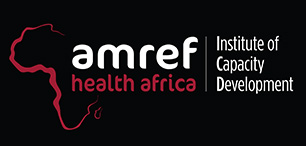The prevalence of infectious diseases (IDs) are a significant burden to Kenya’s health system and overall prosperity. HIV/AIDs, Tuberculosis (TB), malaria and diarrhoeal diseases are among the leading causes of mortality in Kenya. Pneumonia and diarrhoea combined are the leading causes of mortality for children under-five. Prevalence of diarrheal diseases stands at six percent while pneumonia is responsible for 16 percent of under five deaths. Prevalence of non-communicable diseases (NCDs) is also high. According to the WHO, NCDs account for 27 percent of deaths of Kenyans aged between 30 and 70 years. The prevalence of Type 2 diabetes, elevated blood pressure and asthmatics is significant. With the continuous burden of IDs and the growing incidence of NCDs, Kenya is currently experiencing a double tragedy scenario.
Amplifying the dual burden of IDs and NCDs, Africa faces severe shortages and capacity of human resources for health (HRH) that cannot adequately serve the continent’s health needs. In response, through Kenya’s HRH strategy, the national and county governments in collaboration with partners are working to reinforce HRH to deliver efficient, effective and quality health services.
It is for this reason that Amref Health Africa, in partnership with GSK, implemented a two-year project which aims to address these challenges by strengthening the capacity of the health system in Kenya to ensure quality management and control of diarrhoea and pneumonia and, advocacy for NCDs. The project was implemented in four counties (Kilifi, Nairobi, Nyeri and Kakamega), where Amref Health Africa implemented the NCD project (2015 – 2018). The project ran from 1st June 2018 to 31st May 2020.
To reduce morbidity and mortality related to non-communicable (diabetes, and asthma) and infectious diseases (pneumonia and diarrhoea).
Location/Region: Kakamega, Kilifi, Nairobi and Nyeri Counties, Kenya.
Project Duration: 2 years
Donor: Glaxosmithkline
Collaborating Partners: Ministry of Health
Improved capacity of frontline health workers to effectively manage and control IDs and NCDs.
Strengthened community health systems to increase public awareness for prevention, early diagnosis, better management and control of IDs.
Increased access to medicines and supplies for IDs and NCDs.
Strengthened advocacy and documentation to influence action and policy.
